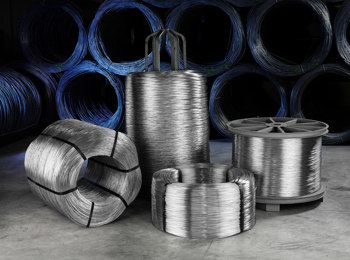ഡിസം . 12, 2024 04:04 Back to list
wholesale gabion cage sizes
Understanding Wholesale Gabion Cage Sizes A Comprehensive Guide
Gabion cages, often referred to as gabion baskets, are versatile and durable structures used in various construction and landscaping applications. These cages are typically filled with rocks, concrete, or other materials to create a strong, aesthetically pleasing barrier or retaining wall. Understanding the different sizes of wholesale gabion cages available in the market is essential for anyone involved in construction, landscaping, or civil engineering. This article delves into the importance of these sizes, their applications, and how to choose the right one for your project.
What are Gabion Cages?
Gabion cages are wire mesh enclosures that can hold loose stones or other solid materials. They come in various sizes and shapes, including rectangular, square, and cylindrical forms. Common materials used for the cages are galvanized steel or coated wire to ensure durability and resistance to corrosion. Gabion cages are popular due to their ability to blend into natural landscapes while providing structural stability.
The Importance of Size
When it comes to gabion cages, size matters. The dimensions of the cages can significantly impact the effectiveness of the structure, its aesthetic appeal, and the overall cost of the project. Selecting the right size ensures that the gabion walls or other applications fulfill their intended purpose without excess material wastage or structural issues.
Standard Sizes for Wholesale Gabion Cages
Wholesale gabion cages come in a variety of standard sizes which are convenient for bulk purchasing. Generally, they are categorized based on their width, length, and height. Here are some commonly available sizes
1. Small Gabion Cages (e.g., 1x1x1 meters) - Ideal for small landscaping projects, such as garden borders or decorative walls. - They can also be used in erosion control on smaller slopes.
2. Medium Gabion Cages (e.g., 1x2x1 meters) - Suitable for more significant landscaping needs, including pathways and seating areas. - They provide a good balance between size and ease of handling.
wholesale gabion cage sizes

3. Large Gabion Cages (e.g., 2x3x1 meters) - Typically used for retaining walls or as foundations for larger structures. - They offer excellent stability and are perfect for heavy applications.
4. Custom Sizes - Many manufacturers also offer custom sizes tailored to specific project requirements, making it easier to achieve desired designs.
Choosing the Right Size
When choosing the right gabion cage size for your project, consider the following factors
1. Purpose Identify the main objective of using gabion cages. Are they for erosion control, landscaping, or structural support? The purpose will largely dictate the size you need.
2. Location and Space Assess the available space where the gabion cages will be installed. Measure the area to ensure the cages will fit properly without crowding or exposing structural weaknesses.
3. Material Selection The type of material used to fill the gabion cages will also influence the size chosen. Larger cages may require heavier materials, which need more substantial support and careful planning.
4. Cost Considerations Wholesale purchases can provide significant savings, but ensure that the size you choose fits your budget in terms of material and installation costs. Remember that larger cages may require more significant investment in both materials and labor.
Conclusion
Wholesale gabion cages offer various sizes to meet an array of construction and landscaping needs. Understanding these sizes and their specific applications is crucial for ensuring that you select the appropriate ones for your project. Consider the intended use, available space, materials, and budget constraints when making your decision. By selecting the right size of gabion cages, you can create beautiful, functional structures that stand the test of time while maintaining the integrity of the environment.
-
Transform Your Outdoor Space with Gabion Fences
NewsApr.01,2025
-
The Versatility of Gabion Baskets for Your Projects
NewsApr.01,2025
-
The Importance of a Protective Net Sleeve for Your Valuable Investments
NewsApr.01,2025
-
The Benefits of Gabion Walls for Your Next Project
NewsApr.01,2025
-
Gabion Baskets
NewsApr.01,2025
-
Discover The Benefits of Protective Nets
NewsApr.01,2025
-
The Essential Guide to Gabion Supplies
NewsMar.12,2025






